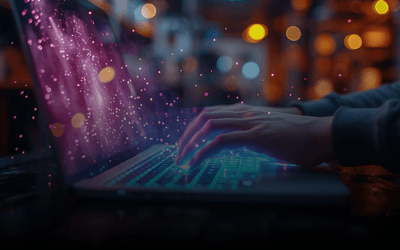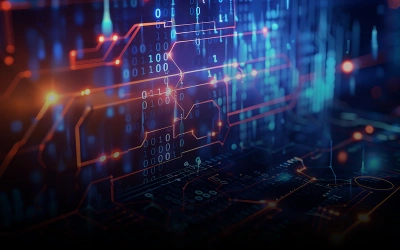To celebrate International Women’s Day, Lorien was delighted to take part in Impellam Group’s annual International Women’s Day panel! We joined our sister brands Comensura and Guidant Global at this important event to celebrate women’s achievements, raises awareness about discrimination and inspire everyone to take action to drive gender priority.
2024’s theme was inspire inclusion, with an aim of bringing people together in a gender equal world, free from bias, stereotypes and discrimination.
This year’s panel was led by a woman who is dedicated to advocating for gender equality and empowerment in the workplace – Lauren Neal, author of Valued At Work. Lauren’s experience in working in male dominated STEM environments and her expertise in championing women’s rights in STEM is very much aligned with Lorien and our client’s ED&I goals. We hope you can take some valuable insights from our summary.
Lauren was joined by:
· Hayley Klaff, Director of Projects in STEM. Hayley is incredibly passionate about this topic and heads up the ED&I Unity Council across Impellam in the UK.
· Hao Ngo, Managing Director at Comensura. Hoa was named as a leader on the 2022 Global Power 150 Women in Staffing list from the SIA.
Why do we need to inspire inclusion?
Lauren: “For me, it’s about making sure that each person feels valued when they come up with new ideas – making sure that they are heard and recognised for their input. That could be in the workplace, or outside the workplace. If we don’t have the ability to have everybody take part, and be valued for taking part, we are going to miss things.”
Hoa: “Sometimes there’s a misconception that you need to be a historical leader or a business leader to actually inspire inclusion. For me, it’s actually about everyday inclusion – the things that we do, the way in which we interact with our peers and have respect for each other – that’s really vital.”
Hayley: “I totally agree, everyone has a part to play in this and we all know hearing the same voices from people with the same backgrounds, we’re going to get the same answers. It’s important that people feel they’ve got an opportunity to contribute, and their voices will be heard. That’s why we need to ensure we have an inclusive environment.”
Experiences as a woman in STEM
Lauren: “Let’s get to who I am, and why I was invited to speak to you today. I wrote and released a book last year, but I’m not here today as an author. I’ve worked in the energy sector for 18 years – offshore, onshore, and onsite. I’ve experienced positive behaviours and some negative behaviours in the workplace – the negative behaviours really outweigh the positive ones.
In the last six years, I’ve openly been told “the company wants you because you tick the diversity box”, no one thought that was an issue. I had a situation once where someone working for me had forged my signature on their timesheet, and when I brought it to my manager, he responded by saying “well, no one has ever done that to me, so you need to look at yourself” These are terrible things – I say it with a smile now because it became a ‘laugh or cry’ situation, but these are my examples.
What I found last year when I wrote my book is, when I started interviewing women in STEM, I was hearing the same stories. A woman speaks in a meeting, and it’s suddenly silence – then they carry on like you didn’t say anything. What’s worse is when someone then goes and says exactly the same point later on and you think “what just happened?”. When it happened to me, I thought “was it me? Did I not articulate it properly?”.
It wasn’t until much later in my career when I realised that I always felt the problem was me. I spoke to women older than me, and women younger than me, and they said exactly the same thing as I did. There was a girl in her 20s who had experienced the same thing, and I thought ‘that’s wrong – you shouldn’t be feeling like you shouldn’t come to work because it makes no difference’. That really spurred me on to actually do something about the situation.
I talk about the negative experiences, but I’ve had positive ones too. When I first joined a company and became a Subsea Engineer, I had a male boss who must have been mid-60s. He came to me and said “Lauren, we don’t have any inspectors to go and witness this power cable joint qualifications. Go to site and witness it”. I packed up my stuff, went six hours down the road, went to site, came back, and reported on it. Then the next time there was a test, he sent me down and I ended up going back and forth for about six months – and then ended up going offshore and installing it myself. It was my manager who took a chance on me and thought ‘what’s the worst that could happen?’. He put the trust in someone who was different from himself, and I believe we need to do more of that.”
Behaviours in the workplace
Lauren: “What behaviours are most damaging or detrimental to women, or others from unrecognised backgrounds, and what can someone who is experiencing those behaviours do?”
Hayley: “I think one of the most damaging things is not listening to someone. Someone in a meeting speaking, and not even being acknowledged. And it gets to a point where they think ‘what is the point of me being in this meeting? Am I even being heard?’. That damages your whole enthusiasm to be doing your job – thinking you’re there just to be seen, or a number, or a token. This isn’t just a problem women face, and it’s done on a regular basis by regular people. My advice to those people is to find someone to talk to. This kind of behaviour isn’t okay.
Hoa: “I urge people to not recruit someone like themselves – I know it can be comforting sometimes to do that or we subliminally don’t quite realise it. I’m probably quite lucky that there’s not many people like me in the business, so I didn’t have a choice.”
The key to allyship
Hoa: “I think the key to allyship is to be curious, be open to stepping in to somebody’s shoes and just listening to their story. I have had this kind of conversation in the past, socially, with people saying, “I don’t think racism exists anymore”. The reality is, unless you experience it, your exposure to certain aspects in life can be very different. I just encourage us to not be perfect, and you know whilst I tick a lot of boxes, I also carry a huge amount of privilege. Privilege isn’t a bad word – you simply have more advantage than others. I’m able bodied – therefore I’m privileged. I’d like to encourage more of that way of thinking.”
Hayley: “I think sometimes people are scared because they feel might offended, and I get that, but we need people to open the doors for people that can’t necessarily get through. There’s being an active ally as well, so you can listen and understand. That’s being an ally. I think we all say ‘oh, I could do more’, but actually the fact that you care is really important.”
Lauren: “The very fact that those attending this event – both in person and online – are showing curiosity, it shows that you’re on your way to allyship. You’re seeking to understand other people’s experiences. I spoke to a man a few months ago, and we’re sharing some experiences I had heard from women within his organisation. He said “Lauren, I’ve never heard this in all the years I’ve worked here. I might just be sheltered”. I said, “why would you have heard this? You’re a straight white man – why would you have heard these stories. Have you ever asked?”. He said no, and said he started to feel uncomfortable. He’s a senior leader. I said, “the thing is, if you start asking these questions, speak to the women who you speak to every day and ask them ‘have you ever experienced this?’”.
“One of the reasons I wrote my book is so that a man would read it and say, ‘have you experienced this?’, because that’s how the conversation starts. Maybe asking about experiences in meetings, asking if your voice hasn’t been heard. The path to allyship starts by seeking to understand.”
We’d like to thank Hoa, Hayley and Lauren for taking part in our annual IWD panel, and a huge thank you to Laura May Browne for hosting. It was a truly inspiring panel discussion, and I think everyone would agree, we learnt a lot and took away some key thoughts and actions on how to improve and adapt in the future.
For more insights from Lorien, click here. For further information on the panel and Lorien’s ED&I culture, contact us here or visit our LinkedIn.







